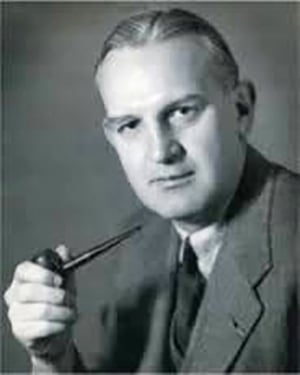
Forty-two years ago, when Sharon and I moved to Connecticut, we knew very little about the state. My main connection to the Nutmeg State was the movie “Gentlemen’s Agreement,” the story of a journalist who pretended to be Jewish in order to expose antisemitism in the town of Darien.
I was a bit concerned how friendly the larger community would be to us when we moved to Stamford as newlyweds. Fortunately, I can only recall one or two antisemitic incidents in the four decades we have lived here, and I have always felt very comfortable publicly displaying my Jewish observance in our community.
The town has a rich history of tolerance in the past 50 years toward different races and religions. Jackie Robinson and his family lived in Stamford for many years during the 1950s until he died in 1972. There have been several interfaith programs to promote common causes during the years we have been here; the Jewish and Christian clergy have warm relations and offer their support to each other in various different ways.
However, it wasn’t always that way.
There’s an area in Stamford called Revonah Woods, an exclusive section of the town with many spacious homes on large plots of land. The area was originally developed as a racially and ethnically restricted upper middle-class enclave. The Revonah area had strict rules on its deeds that did not allow the homes in the area to be sold or rented to Jews. The original developers would be turning over in their graves if they knew that 75% of the 50 homes are now owned by Jewish families.
And then there is the story of Walter Wheeler Jr. (1897-1997), who was the captain of the Harvard College football team and a World War I veteran. He worked in his stepfather’s business, Pitney Bowes, which was headquartered in Stamford. He became chief operating officer, then president, and finally the CEO.
He was one of the early advocates of profit sharing in business, instituting a profit-sharing plan for Pitney Bowes in 1936. He believed that the sharing of profits was “the only means of tangibly demonstrating the partnership of capital and labor” instead of merely giving lip service to partnership.
He oversaw the introduction of the first mass market postage meter and developments in mail processing equipment that were implemented by the United States Postal Service.
Perhaps his main claim to fame was his commitment to eliminating racial and ethnic prejudice in society. He always made sure that his personnel department would hire blacks, Poles, Italians and Jews, which at the time was quite revolutionary because most other companies refused to hire these minorities. In 1942, he courageously boycotted a local hotel that refused to serve Blacks.
However, Wheeler was most famous for taking a moral stance against antisemitism. Here’s the fascinating story.…
Wheeler was an avid yachtsman and became commodore of the Stamford Yacht Club in the 1930s. In 1940, he wanted to loan his boat to a local Jewish resident in Stamford, Manfred Ehrich. However, the club’s officers objected to Wheeler’s intentions, saying, “The club cannot afford to have Jews in its launches.”
On May 27, 1940 Wheeler responded to the Stamford Yacht Club’s commodore with a letter that stated, “Either I acquiesce to the unfair discrimination which protects this, or I endeavor to do my part, small as it may be, toward creating a fairer situation, if not for him than for others like him. If this means putting myself in his position, it will be a salutary experience for me — and it will be for others. However, if I am to remain a member of the Stamford Yacht Club, I must ask that the Board establish a policy on this issue that will assure me that should I propose my friend, or should any other member propose a Jew, he will be carefully considered and investigated as a potential club member, the decision to be reached entirely on his character and merit as an individual; that he will not be excluded simply because he is a Jew.”
Wheeler stood by his convictions and resigned his membership at the Stamford Yacht Club because they refused to change their policy. Fourteen years after he resigned, the club finally changed the rules to say that admission to the club could not be based on race or religion. Wheeler rejoined the club after the policy was changed. In 2008, Commodore Wheeler was remembered again when members attending the annual meeting added a comprehensive non-discrimination policy to the club’s constitution.
As we witness more and more global antisemitism and we realize that some of the people who we thought were our friends are not willing to stand up for Israel and the Jewish community, it behooves us to remember individuals like Walter Wheeler Jr., who were not afraid to stand up for what they believe was morally right, even if it was not the popular position to take.
Michael Feldstein, who lives in Stamford, is the author of “Meet Me in the Middle” (meet-me-in-the-middle-book.com), a collection of essays on contemporary Jewish life. He can be reached at m[email protected].












